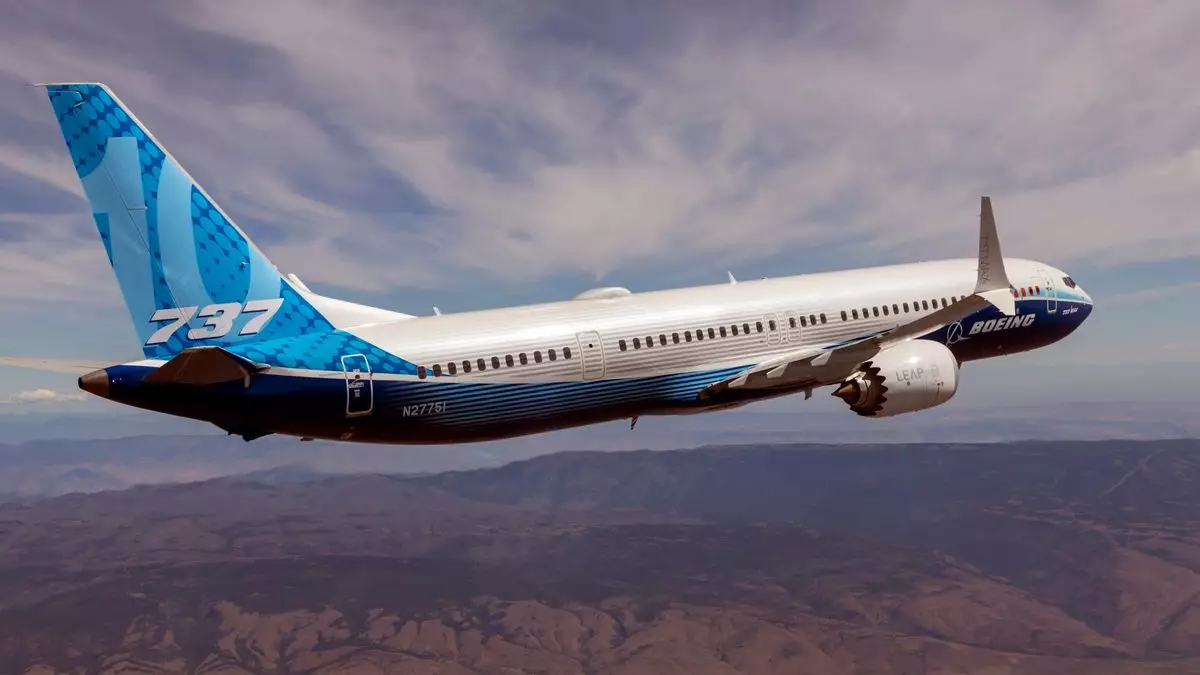The recent agreement between the U.S. Justice Department and Boeing, allowing the aerospace titan to evade criminal prosecution amid allegations of corporate misconduct, has sent shockwaves through various sectors. Boeing, a name synonymous with commercial aviation, now stands at a crossroads that poses significant questions about accountability and corporate ethics. This bargain, which involves a payment of over $1.1 billion, including compensation for the families of the victims of the two tragic 737 Max crashes, undeniably raises concerns about the adequacy of penalties for one of the deadliest corporate failures in history.
The deal was brokered under the premise that it serves the greater good; that it avails justice by providing compensation to affected families while ensuring the safety of future air travel. A Justice Department spokesperson positioned this resolution as one that holds Boeing accountable, despite the company’s continued avoidance of criminal charges. But can financial reparations truly equate to justice for the lives lost, or does this settlement serve primarily as a shield for corporate interests?
The Victims’ Voices: A Call for Justice
Despite the Justice Department’s assurances, the reactions from the families of the victims tell a different, more poignant story. Many have expressed deep dissatisfaction with the arrangement, criticizing it as a mere financial transaction that fails to recognize the gravity of Boeing’s actions. Paul Cassell, an attorney representing several families, articulated a sentiment echoed by many: that such a non-prosecution deal is fundamentally flawed for an incident that caused profound loss. Javier de Luis, who lost his sister in one of the crashes, emphasized the alarming message this deal sends to corporations: prioritize profits over safety, for financial penalties are merely a cost of doing business.
This critique highlights a troubling aspect of corporate governance where accountability seems negotiable. The grieving families deserve a platform for their pain, yet the prospect of a public trial—a chance for transparency and accountability—has been cast aside. How can society reconcile the loss of nearly 350 innocent lives with a settlement that allows Boeing to walk away, while families grapple with their unimaginable loss?
Corporate Culture and Regulatory Oversight
The Boeing case isn’t just about the crashes; it is symptomatic of a broader systemic failure within corporate structures and regulatory oversight. The allegations that Boeing misled the Federal Aviation Administration (FAA) about the 737 Max’s safety features, particularly the new Maneuvering Characteristics Augmentation System (MCAS), epitomize a culture that prioritizes expediency over ethical considerations and safety. Such a culture encourages a mindset where gaining regulatory approval becomes a game rather than a responsibility.
When regulatory bodies like the FAA grant safety certifications, there must be an implicit trust in the information provided by manufacturers. Boeing’s failure to disclose critical information regarding the MCAS software and its impact on flight safety represents a catastrophic breach of that trust. This incident showcases the ripple effect of corporate negligence—not only does it result in loss of life, but it also undermines public confidence in aviation safety.
As Boeing continues to navigate its regulatory obligations and corporate governance questions, one can only hope that this incident serves as a catalyst for change. Aviation is a field that thrives on trust; a betrayal of that trust can have devastating consequences. Thus, it is imperative that the industry reassesses its commitment to safety and transparency in the wake of such tragedies.
Looking Forward: The Need for Reform
The resolution of this case is not just an isolated legal matter; it carries significant implications for the future of corporate accountability in America. When companies are deemed too big to fail or too integral to the national interest to face justice, the message conveyed is disturbing. It challenges the very notions of justice, responsibility, and the sanctity of human life.
Apart from immediate accountability, this situation calls for comprehensive reform on multiple fronts. Legislative measures must be established to ensure that corporate entities are held to stringent standards of safety and transparency, particularly in industries where the stakes are as high as aviation. Additionally, there needs to be a paradigm shift in how corporations engage with regulators—transparency should not merely be a tool but a fundamental obligation.
In the end, while monetary compensation addresses some immediate needs for the affected families, it cannot replace the profound loss of life and trust. The pursuit of justice must extend beyond settlements to ensure that we protect the most sacred aspect of our society—human life. The Boeing case should serve as a sobering reminder that financial clout cannot and should not shield corporations from the consequences of their actions.

